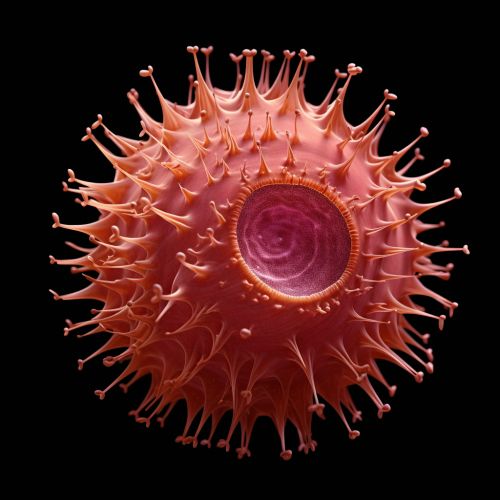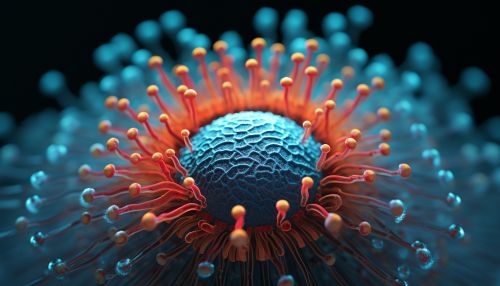Coronavirus
Overview
The Coronavirus is a type of virus that causes diseases in mammals and birds. In humans, the virus causes respiratory infections which are typically mild but, in rare cases, can be lethal. In cows and pigs, they cause diarrhea, while in chickens, they can cause an upper respiratory disease. There are no vaccines or antiviral drugs that are approved for prevention or treatment.
Etymology
The name "coronavirus" is derived from the Latin corona, meaning crown or halo, which refers to the characteristic appearance of the virus particles (virions): they have a fringe reminiscent of a royal crown or of the solar corona.
History
Coronaviruses were first identified in the 1960s, but we don't know where they come from. They get their name from their crown-like shape. Sometimes, but not often, a coronavirus can infect both animals and humans. Most coronaviruses spread the same way other cold-causing viruses do: through infected people coughing and sneezing, by touching an infected person's hands or face, or by touching things such as doorknobs that infected people have touched.
Almost everyone gets a coronavirus infection at least once in their life, most likely as a young child. In the United States, coronaviruses are more common in the fall and winter, but anyone can come down with a coronavirus infection at any time.
Structure and Genome
Coronaviruses are large, roughly spherical particles with unique surface projections. Their size is highly variable with average diameters of 80 to 120 nm. Extreme sizes are known from 50 to 200 nm in diameter. The total molecular mass is on the order of 40,000 kDa. They are enclosed in an envelope embedded with a number of protein molecules. The lipid bilayer envelope, membrane proteins, and nucleocapsid protect the virus when it is outside the host cell.
Replication Cycle
The replication cycle of coronaviruses is complex and involves several stages, including attachment, penetration, uncoating, replication, post-translational modifications, assembly, and release.
Coronaviruses primarily infect the upper respiratory and gastrointestinal tract of mammals and birds. They also cause a range of diseases in farm animals and domesticated pets, some of which can be serious and are a threat to the farming industry. In chickens, the infectious bronchitis virus (IBV), a coronavirus, targets not only the respiratory tract but also the gut, liver, and kidney. In cows and pigs, coronavirus causes diarrhea, while in mice it causes hepatitis and encephalomyelitis.
Prevention and Treatment
There are no specific treatments for coronaviruses. Most people will get better on their own. However, you can relieve your symptoms by taking over the counter medications for pain, fever, and cough. However, do not give aspirin to children or teens younger than 19; use ibuprofen or acetaminophen instead.
See Also


